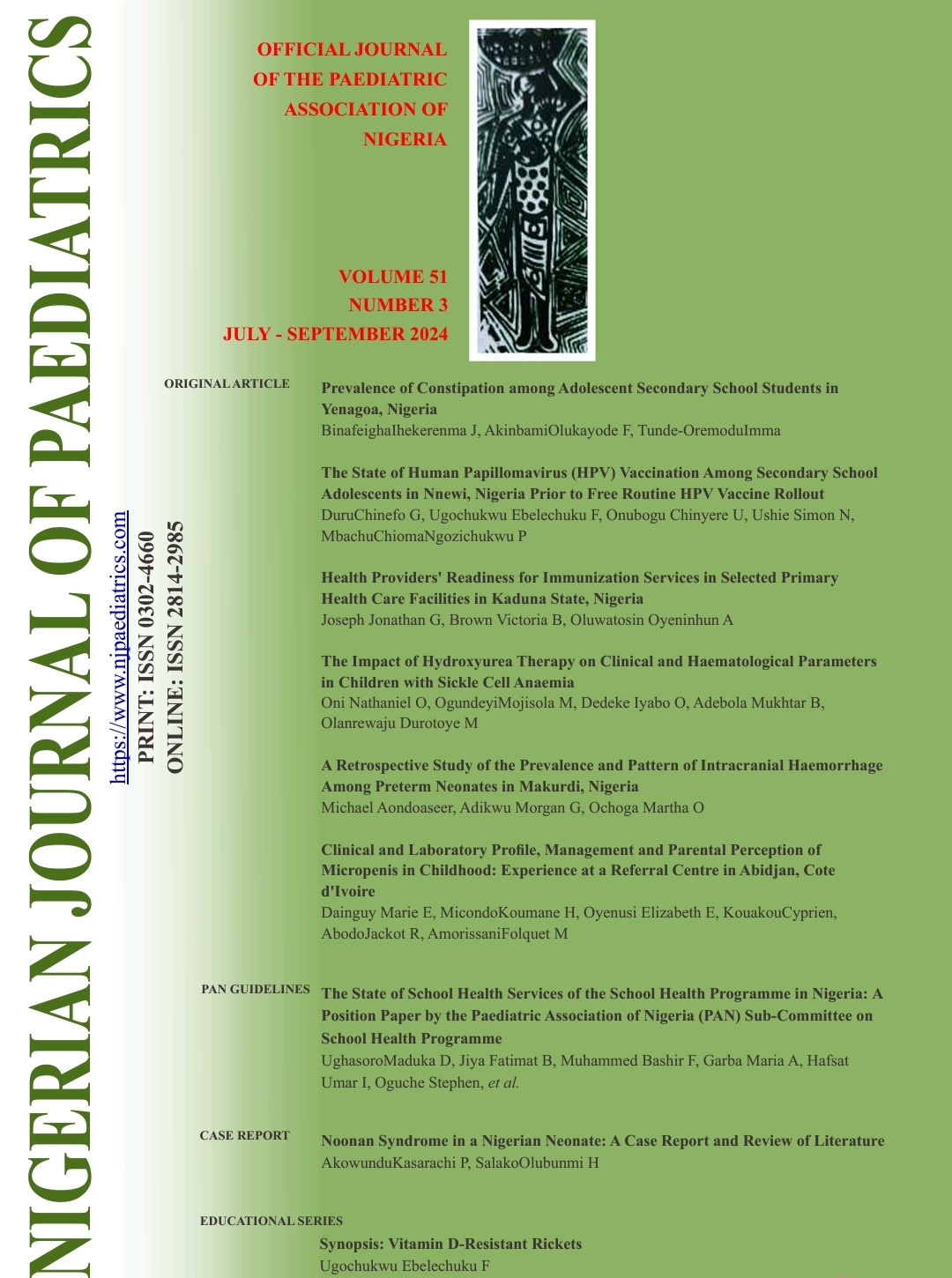The Impact of Hydroxyurea Therapy on Clinical and Haematological Parameters in Children with Sickle Cell Anaemia
Keywords:
Haematological Profile, Hydroxyurea, Myelosuppressive, Sickle Cell Anaemia, Vaso-occlusive-Crises.Abstract
Background: Sickle cell anaemia (SCA) is an inherited genetic disorder of the erythrocyte that is frequently encountered worldwide. Hydroxyurea is a myelosuppressive and sickle cell disease-modifying agent.
Objective: To determine the effects of six months of treatment with hydroxyurea on the clinical and haematological parameters of children with SCA.
Methods: A longitudinal study involving 58 subjects was used. Clinical and haematological parameters were recorded at recruitment and intervals within six months of the commencement of hydroxyurea. Pre- and post-HU therapy data were compared.
Results: There was a significant reduction in the frequency of vaso-occlusive crises, acute chest syndrome, hospitalisations, stroke and blood transfusions (p<0.001 respectively). Haemoglobin F value and packed cell volume increased from a median (IQR) of 6.6% (6.0) to 15.9% (7.6) and from 22.0% (3.9) to 27.0% (3.5), respectively (p<0.001 in each case).
Conclusion: This study reports significant improvement in the clinical and haematological profiles of children with SCA following hydroxyurea therapy. Due to its proven clinical and haematological advantages, hydroxyurea should be globally adopted to manage SCA in children.
Downloads
Published
Data Availability Statement
Available
Issue
Section
License
Copyright (c) 2024 NIGERIAN JOURNAL OF PAEDIATRICS

This work is licensed under a Creative Commons Attribution 4.0 International License.
This is an open-access journal, and articles are distributed under the terms of the Creative Commons Attribution 4.0 License, which allows others to remix, transform, and build upon the work even, commercially, as long as appropriate credit is given to the author, and the new creations are licensed under identical terms

